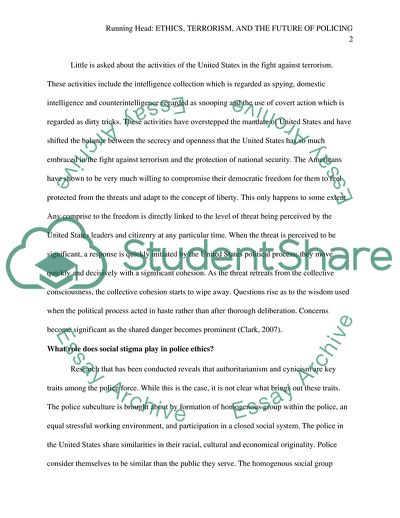Cite this document
(The Activities of the United States in the Fight against Terrorism Case Study Example | Topics and Well Written Essays - 1250 words - 2, n.d.)
The Activities of the United States in the Fight against Terrorism Case Study Example | Topics and Well Written Essays - 1250 words - 2. https://studentshare.org/politics/1748132-ethics-terrorism-and-the-future-of-policing
The Activities of the United States in the Fight against Terrorism Case Study Example | Topics and Well Written Essays - 1250 words - 2. https://studentshare.org/politics/1748132-ethics-terrorism-and-the-future-of-policing
(The Activities of the United States in the Fight Against Terrorism Case Study Example | Topics and Well Written Essays - 1250 Words - 2)
The Activities of the United States in the Fight Against Terrorism Case Study Example | Topics and Well Written Essays - 1250 Words - 2. https://studentshare.org/politics/1748132-ethics-terrorism-and-the-future-of-policing.
The Activities of the United States in the Fight Against Terrorism Case Study Example | Topics and Well Written Essays - 1250 Words - 2. https://studentshare.org/politics/1748132-ethics-terrorism-and-the-future-of-policing.
“The Activities of the United States in the Fight Against Terrorism Case Study Example | Topics and Well Written Essays - 1250 Words - 2”. https://studentshare.org/politics/1748132-ethics-terrorism-and-the-future-of-policing.


